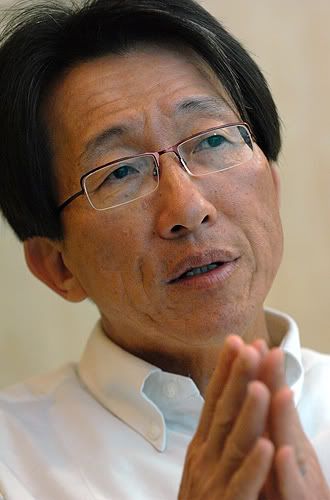They need to score As, too
by The Daily Telegraph 05:55 AM Sep 08, 2009TOKYO - Japan's most infamous underworld group, the Yamaguchi-gumi, is forcing its gangsters to study for an exam covering the key aspects of their trade.
Gang bosses have introduced the written tests for their subordinates since the Anti-Organised Crime Law was revised last year, making the group's leaders responsible for the actions of street-level members.
The police discovered an exam paper containing 12 questions on appropriate action in a given situation that a gangster might find himself involved in, as they investigated the murder in Shiga Prefecture of a gang member affiliated with the 40,000-strong Yamaguchi-gumi, based in Kobe.
The questions covered activities that were banned - which included everything from phone fraud to theft of vehicles - as well as ordering that all activities be reported to senior members of the gang.
"When you think about it, this is an extremely sensible move," said author Jake Adelstein, who has written about Japan's underworld groups.
"The Yamaguchi-gumi is essentially a gigantic corporation and if you are running a company of this scale then the first thing you want to do is reduce your liabilities."
"I'm continually impressed at the lengths they go to in order to protect their business interests," Mr Adelstein added.
Those business interests have been affected by the economic downturn and led to friction between rival groups looking to expand into neighbouring areas.
Pressure has also been increased on gangs, as residents living close to their headquarters are resorting to the courts to have them evicted on the grounds that their turf wars threaten the lives and livelihoods of local people.
by The Daily Telegraph 05:55 AM Sep 08, 2009TOKYO - Japan's most infamous underworld group, the Yamaguchi-gumi, is forcing its gangsters to study for an exam covering the key aspects of their trade.
Gang bosses have introduced the written tests for their subordinates since the Anti-Organised Crime Law was revised last year, making the group's leaders responsible for the actions of street-level members.
The police discovered an exam paper containing 12 questions on appropriate action in a given situation that a gangster might find himself involved in, as they investigated the murder in Shiga Prefecture of a gang member affiliated with the 40,000-strong Yamaguchi-gumi, based in Kobe.
The questions covered activities that were banned - which included everything from phone fraud to theft of vehicles - as well as ordering that all activities be reported to senior members of the gang.
"When you think about it, this is an extremely sensible move," said author Jake Adelstein, who has written about Japan's underworld groups.
"The Yamaguchi-gumi is essentially a gigantic corporation and if you are running a company of this scale then the first thing you want to do is reduce your liabilities."
"I'm continually impressed at the lengths they go to in order to protect their business interests," Mr Adelstein added.
Those business interests have been affected by the economic downturn and led to friction between rival groups looking to expand into neighbouring areas.
Pressure has also been increased on gangs, as residents living close to their headquarters are resorting to the courts to have them evicted on the grounds that their turf wars threaten the lives and livelihoods of local people.


